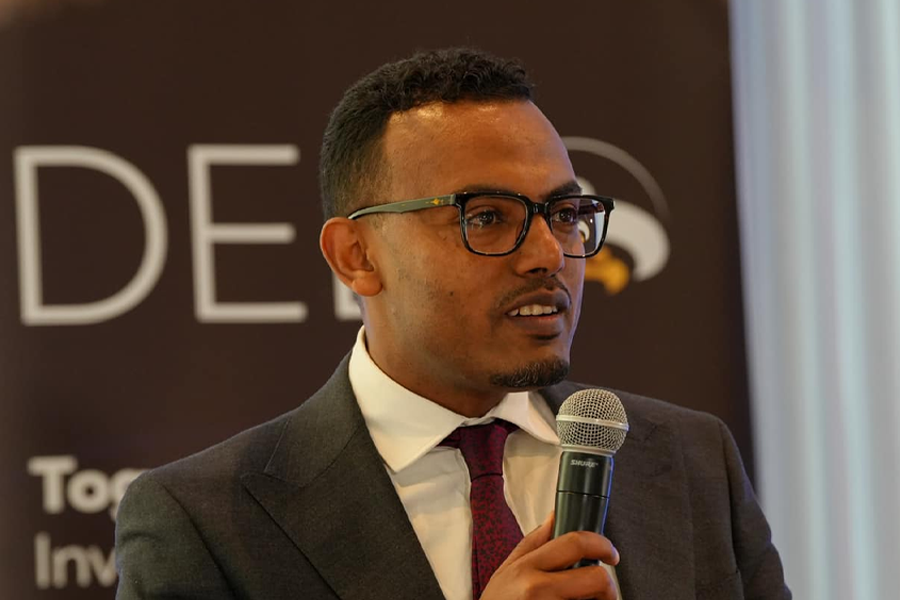
Fortune News | May 23,2025
Feb 14 , 2024
By AKSAH ITALO ( FORTUNE STAFF WRITER )
The federal government, alongside private sector players, is embarking on an ambitious pilot project to construct 3,600 housing units.
The initiative, routed through Public-Private Partnerships (PPP), seeks to provide homes to employees of the state-owned broadcaster the federal housing corporation is heralding a novel approach to the country's housing development strategy. At the heart of this venture is a stringent requirement for interested companies, which must demonstrate assets of at least 45 million dollars to qualify for participation. The high threshold shows the authorities push for financially robust partners, capable of shouldering the substantial investment and long-term commitment the projects entail.
The Ministry of Finance, which floated the Request for Qualification (RFQ) bid over a month ago, has already seen interest from 23 real estate and construction companies, signalling the private sector's eagerness to engage in the housing sector reform. With the application window still open, the number of prospective bidders is expected to rise.
The initiative represents a critical juncture in the housing development policy, marking a departure from traditional public sector-led models to a joint venture approach that leverages the private sector's capital. Convening representatives of over 50 companies at the headquarters on King George VI St, officials of the Ministry of Finance clarified last week the critical aspects of the project, including risk-sharing guarantees, tax incentives, and assurances against potential price fluctuations and foreign currency issues.
According to a senior official of the Ministry, these were elements that had not been previously explored in the housing projects.
The project's governance structure comprises an 11-member board chaired by Finance Minister Ahmed Shide, featuring prominent officials such as Alemu Sime (PhD), minister of Transport & Logistics (MoTL); Mamo Mihretu, governor of the National Bank of Ethiopia (NBE); Habtamu Itefa (PhD), minister of Water & Energy; Chaltu Sani, minister of Urban & Infrastructure (MUTI); Fitsum Assefa (PhD), minister of Planning & Development (MoPD); and, Binalf Andualem, minister of Peace (MoP).
The multi-disciplinary board is evidence of the comprehensive approach adopted to address its housing challenges, aiming for a collaborative effort across different government sectors, according to Fikadu Wamisho, head of Procurement division at the PPP Project Office.
Given the projects ' long-term nature and associated risks, he stressed the importance of thorough self-assessment for potential developers. According to him, the management and maintenance of the housing units would fall under the developers' responsibility, adding another layer of commitment required from private sector participants.
The project has sparked discussions around the inclusivity and accessibility of such large-scale initiatives, with concerns raised by local companies over the high entry barriers.
Addis Habte, a significant shareholder of Capducia Real Estate Plc, voiced reservations about the potential exclusion of local firms due to the stringent overall requirements.
"It's unlikely anyone will participate in these conditions," he told Fortune
The sentiment reflects the broader challenges domestic investors face in participating in large-scale public infrastructure projects.
Abebe G. Hiwot, director of the Project Office, reassured developers, mentioning potential support mechanisms, including short-term windows for loans in foreign currency from the National Bank of Ethiopia (NBE) and possible tax incentives.
"These measures aim to mitigate the financial constraints and encourage domestic participation in the project," said Abebe. "Several strategies are being considered to prevent project failures."
The selection process for developers will lead to the issuance of Requests For Proposals (RFP), where technical and financial capabilities will be examined. Successful companies will be required to establish a Special Purpose Vehicle (SPV) within three months, demonstrating a significant equity-to-loan ratio, which indicates the company's commitment and financial stability.
The Ministry of Finance has identified an additional 15 plots of land for future PPP housing schemes, contingent on the pilot project's success.
The initiative comes on the heels of a comprehensive feasibility study by the Ministry of Urban & Infrastructure, aimed at exploring viable models for building a portion of its ambitious plan to construct 79,800 housing units through private sector partnerships. However, the progress has been slower than anticipated, with only 37,000 homes completed in the past three years against a decade-long target of 4.4 million units.
Interest in the pilot project spans various companies, including Purpose Black Ethiopia, an agricultural produce distributor that has recently ventured into the real estate sector with plans to construct a 115-story building near Mexico Square. CEO Fesseha Eshetu's participation at the meeting last week showed varied interest in the project and highlighted the potential for financing and development models within the PPP framework.
"We're interested and financially capable," Fesseha told Fortune
The three-year-old company was incorporated with equity raised from 135 shareholders. Fesseha indicated his desire for the expansion of modalities for PPP schemes to include unsolicited proposals that can come from the private sector.
"Will the authorities be open to our ideas?" he contemplated. "We'll have to wait and see how the first project proceeds".
PPP project bids are administered through various methods, offering a flexible framework for private sector engagement. The flexibility is crucial for accommodating different project scales and complexities, ensuring that the PPP model can be adapted to a wide range of housing development needs.
Experts like Abebe Dinku (Prof.) argue that the high land cost and the public sector's inefficiencies have long stunted the provision of adequate housing. By bringing the private sector into the fold, the government hopes to overcome these challenges, leveraging private investment and expertise to accelerate housing development.
"Adopting PPPs for housing development is a long-overdue strategy," he told
The Ethiopian Broadcasting Corporation (EBC) and the Federal Housing Corporation (FHC) are set to be the first beneficiaries of the pilot project, with plans to provide housing for 2,600 EBC employees. EBC's management hopes to see a 4.5hct plot develop through the construction of 1,600 residential apartments and the renovation of 15 villas and 400 commercial units at an estimated cost of seven billion Birr.
"Involving the private sector will significantly unburden the Corporation," says Tadesse Gadissa, deputy director of EBC.
The Housing Corporation has designated six plots across five districts ranging between 2,890Sqm to 5,940Sqm for its share of the pilot PPP project, estimated to cost around nine billion Birr.
Zekarias Sebsibe, a representative of the Corporation, revealed to the prospective developers that several projects which will actively involve the private sector would be rolled out as the government alone will not be able to meet the housing demand.
"This is just the tip of the iceberg," he said.
Abebe, the expert, argued that adequate housing was placed out of reach for most Ethiopians due to skyrocketing land lease prices for private development and the public sector's inability fo finish projects on time.
"Neither the private nor the public sector could provide adequate housing on their own," he told
He recommended emulating the Western world's experience in developing housing projects through PPP schemes to discover cost-effective designs and sensible financing arrangements.
Abebe urged the authorities to expand tax incentives for the private sector and provide low-interest-rate loans to capitalise on projects for successful PPP arrangements.
"Long-term strategic thinking will be crucial, " he said.
PUBLISHED ON
Feb 14,2024 [ VOL
24 , NO
1241]

Fortune News | May 23,2025

Delicate Number | Jun 14,2025

Fortune News | Oct 27,2024

Featured | Sep 10,2023

Agenda | Jul 20,2025

Fortune News | Sep 22,2024

Radar | Mar 02,2024

Radar |

Editorial | Mar 18,2023

Life Matters | Jul 29,2023

Dec 22 , 2024 . By TIZITA SHEWAFERAW
Charged with transforming colossal state-owned enterprises into modern and competitiv...

Aug 18 , 2024 . By AKSAH ITALO
Although predictable Yonas Zerihun's job in the ride-hailing service is not immune to...

Jul 28 , 2024 . By TIZITA SHEWAFERAW
Unhabitual, perhaps too many, Samuel Gebreyohannes, 38, used to occasionally enjoy a couple of beers at breakfast. However, he recently swit...

Jul 13 , 2024 . By AKSAH ITALO
Investors who rely on tractors, trucks, and field vehicles for commuting, transporting commodities, and f...

Oct 25 , 2025
The regulatory machinery is on overdrive. In only two years, no fewer than 35 new pro...

Oct 18 , 2025
The political establishment, notably the ruling party and its top brass, has become p...

Oct 11 , 2025
Ladislas Farago, a roving Associated Press (AP) correspondent, arrived in Ethiopia in...

Oct 4 , 2025
Eyob Tekalegn (PhD) had been in the Governor's chair for only weeks when, on Septembe...